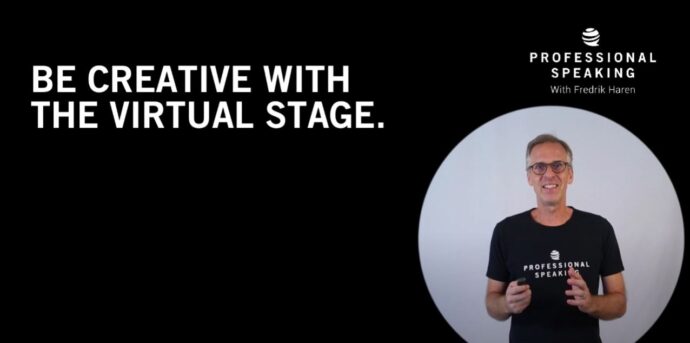
Dear fellow speaker and ProfessionalSpeaking follower.
As mentioned earlier I am not doing weekly episodes of ProfessionalSpeaking any more. After 300 weekly episodes of sharing speaking tips – for free, and without selling anything – I decided to reduce the frequency a bit while I focus on some other projects. I hope you have found value from these free speaking tips, and appreciate the episodes when they do come.
In this episode of Professional Speaking I thought I would share some lessons about writing.
And for this episode I will not do a video, but instead communicate via text and I will not talk about speaking, I will instead write about writing.
While video has become much more important for speakers than it used to be, writing a book is still more or less essential. Not necessarily because people are buying a lot of books (they are not), or because it gives you credibility (it does, but not as much as it used to), but because writing a book is a great way to structure your thoughts and push you to do research.
So how do I look at book writing? As if it was baking. Let me explain.
1) Research (getting all the ingredients in order)
2) Work the text. (Kneed the dough)
3) Let the text rest (letting the dough rest)
4) Send it away (put it into the oven)
Let’s look at them one by one.
1) Research (getting all the ingredients in order)
Many people who have never written a book seem to think that writing a book starts with writing. It doesn’t. It starts with researching. The worst books (with some exceptions) are books where people just wrote down their thoughts on a subject.
Writing a book, if you ask me, is at lest 80% research and perhaps 20% writing.
Interview at least 100 people on the topic you are writing on. Have a folder on your computer (like Evernote) where you keep every article, text, video, information, quote, story etc about the topic you are writing on.
Only 10% or so of all the material you actually collect should be good enough to make it into the book. (And then just 10% of all that made it into the book makes it into the speech.)
A book takes 2-5 years for me to write. But the writing is usually less than 6 months. The rest is research, and me thinking about what I am going to write once I do.
Lesson: Do more research and collect more material than you think you need. Writing is not writing. Writing is research and thoughts on paper.
2) Work the text. (Kneed the dough)
There is no one way to write, but this is how I write: I re-write and re-write and re-write.
Some people make an amazing structure and stick to it.
Some writers write a rough draft, not caring about structure, and then go back and edit.
I start to write as soon as I have an idea of the kind of text I want to create and then, if I stumble on a sentence, I will sit and re-write that one sentence (or paragraph, or page) over and over again until I feel it has the flow I am looking for.
The “Delete” button is most likely the second most key on my keyboard after “Space”…
To me, writing is a joyful way of solving a puzzle, and you can feel it in your soul when the pieces (the words) have fallen into place in the correct order.
Lesson: Writing is not writing. Writing is re-writing. So re-write over and over again.
3) Let the text rest (letting the dough rest)
Writing a book for me takes time. Not because of the writing itself, but because I will let a text “rest” for months on end. When I do write, I write in chunks. I block off 1-2 weeks or more and do almost nothing but write all day. But after a while you get so sucked into the words that you cannot see what you have written. That’s when you need to distance yourself from the text. I can leave a text for months. When I come back to it, I read it as if it was written by someone else, not as if I know every word by heart (which is how it feels when I am in writing mode.)
When I re-visit a text after being away from it for a while it becomes much easier to separate the beautiful sentences from the ugly ones. The ugly ones are the ones that need editing.
Because no matter how much you have re-written a text while you were in writing mode, you can bet that large chunks of it needs to be re-written once you come back to it after giving it a rest. (Most books I re-write multiple times. For one book I did more than 20 edit rounds before sending it to the editor.
Lesson: Give yourself time to take a break from the text to be able to read it with fresh eyes.
4) Send it away (put it into the oven)
No matter how great of an writer you think you are, always send the script away to an external editor. I can not stress enough how important it is to get a professional editor to go through your text. Yes, it can hurt to get all that feedback, but better to get it before the book comes out than after…
Many first time writers will “save” on editor, but please do not do that.
Lesson: Get a professional editor.
Conclusion: As I am writing this I am actually working on 5 books at the same time. One is ready to be published, one is in the final editing stages, and three are in different stages of development. I do not recommend working on five books at the same time – it tends to drag out the time it takes to get them out – but that’s how my brain works…
But know this: never stress a book out. The process of writing a book is the most rewarding part, at least for me. Few things gives you so much satisfaction than to take a huge amount of mumbled up thoughts of yours and then structuring them into a book that clearly communicates those thoughts to other people in a way that gives them value.
Good luck with your book writing – and with your speaking!
Fredrik Haren – The Creativity Explorer and the man behind ProfessionalSpeaking.com.

